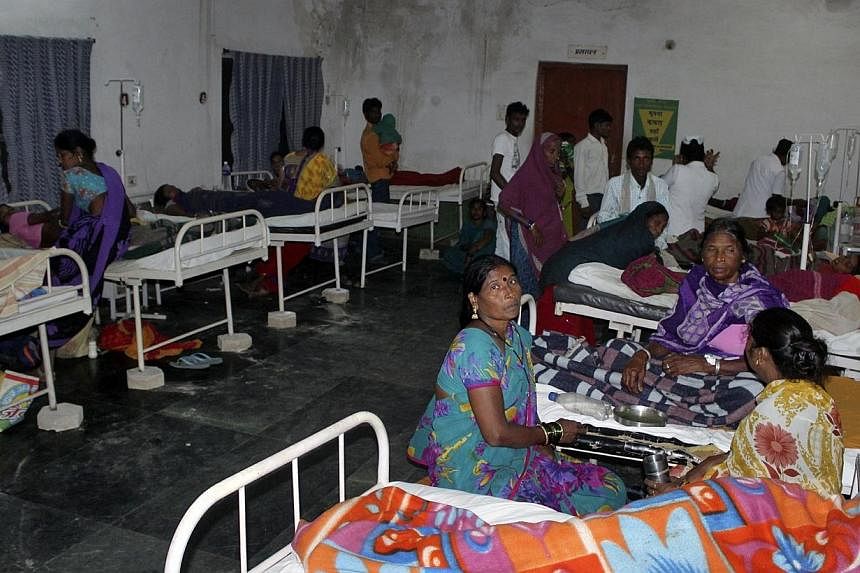BHUBANESWAR, India (Reuters) - The number of women who died after operations performed by a doctor accused of using rusty equipment at a mass sterilisation "camp" in India rose to 13 on Wednesday, highlighting the dangers of the world's largest surgical contraception programme.
The women, among more than 80 to undergo surgery, fell ill at a so-called family planning camp at a village in the central state of Chhattisgarh on Saturday. Such camps are held regularly in India as part of a long-running effort to control its booming population.
The cause of the deaths was not immediately clear, but officials said the victims showed signs of toxic shock, possibly because of dirty surgical equipment or contaminated medicines. "Preliminary reports show that the medicines administered were spurious and also the equipment used was rusted," senior local government official Siddharth Komal Singh Pardeshi told Reuters.
The incident is an embarrassment for Prime Minister Narendra Modi, whose Bharatiya Janata Party rules in Chhattisgarh. He has vowed to reform India's health system. Mr Modi expressed concern over the tragedy on Tuesday.
The doctor R.K. Gupta had been accused of operating on more than 80 women in just a few hours with the help of two assistants in an abandoned private hospital, officials said, contravening government guidelines to limit such operations to 30 a day.
The local government on Wednesday registered with the police a case of causing death by negligence against Dr Gupta. Local media said Dr Gupta blamed medicine the women had been later given and denied making any mistakes. He could not immediately be reached by Reuters for comment.
A tubectomy procedure is considered major surgery but Indian doctors often exceed daily limits. Before guidelines were set, there were reports that doctors carried out as many as 200 surgeries a day, said Dr Suneeta Mittal, head of gynaecology at Fortis Memorial Research Institute near New Delhi.
All the women have been hospitalised for observation and 20 are in critical condition, with many not responding to treatment, doctors said.
India carries out more female sterilisations than any other country. Sterilisation is the most popular form of birth control and the government provides cash and other incentives to encourage men and women to undergo the operation.
India's winter is known in some quarters as "sterilisation season", when the weather is cool, reducing the risk of infection, and state governments rush to meet targets before the end of the financial year in March.
A team of doctors had arrived in the district of Bilaspur from New Delhi to investigate what went wrong.
To many in India's medical establishment, the surgery exemplifies an inhuman programme which relies on targets, bribes and coercion.
Workers from the Congress party, the main opposition in Chhattisgarh, one of the poorest regions in India, have called for a statewide strike.
India was the first country in the world to introduce a policy to deliberately reduce the size of its population.

